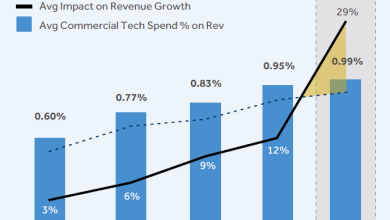Artificial intelligence (AI) is being used in thousands of different ways. Even if we don’t always realize it, chances are that something in our daily lives has already been touched by AI. The technology is used in shipping and manufacturing to increase safety and efficiencies in our supply chains, it is used in higher education to determine who qualifies for financial aid, and it is used in research to quickly scan literature and piece together ideas from different fields that could be related.
Today, many industry experts are excited about the future of AI. For example, many companies are now incorporating artificial intelligence solutions to combat fraud. Rapid changes and efficiencies have already been gained in the financial industry and patients are benefitting from greater fraud prevention in healthcare systems.
Regardless of the great strides that AI has made in improving our lives in the past decade, it still has one major problem it struggles to overcome: image. Thousands of people and companies have limited trust in the security and effectiveness of AI for a variety of reasons. Addressing trust issues is a major obstacle in incorporating AI even further into our lives.
Financial Institutions
Artificial intelligence is poised to completely change the way that most financial institutions do business. Today, nearly all business accounting tasks — from payroll to banking to audits — can be completed using some form of AI. Using it can increase efficiency and accuracy by up to 80%. For instance, AI can be used to automate authorization and processing of documents such as procurement and purchasing, invoicing, purchase orders, expense reports, and accounts payable and receivables. AI solutions could effectively streamline many time-consuming and paperwork-intensive processes while reducing the likelihood of mistakes.
Auditing is another accounting aspect where AI can increase efficiency and reduce levels of potential fraud. Machine learning algorithms are already regularly utilized to conduct a more in-depth analysis of complex data. This can help professionals identify and understand irregularities that they may not have otherwise seen.
Even within the federal government, AI can help reduce wasteful or fraudulent spending of taxpayer dollars. One example is through recent COVID-19 federal funding. It is well-understood that the funds were highly targeted for fraudulent activity, but AI can help federal investigators crack down on those that would cheat the system more effectively.
Traditional methods of tracking down fraudulent use of government money are time-consuming and often relatively ineffective. It takes a great deal of follow-up for just one case to be brought forward and properly vetted, let alone hundreds of thousands. AI is starting to play a significant role in identifying irregularities that could result from fraud. Investigators can then spend more time on specific cases, rather than filtering through thousands of documents.
Healthcare
The healthcare system is another arena where AI can make significant strides. There are thousands of ways AI can make a big difference from processing health data of patients looking for certain disease indicators to synthesizing the reported symptoms and tracking the spread of disease across the county. The latter strategy has been heavily utilized as a part of the COVID-19 pandemic response.
Beyond healthcare outcomes though, AI can also be used to make significant strides in combating healthcare fraud. Americans spend over $3.8 trillion annually on healthcare and 3-10% of that spending is fraudulent. These are funds charged by hospitals or doctors for unnecessary testing, billing for more expensive procedures than what took place, or breaking up procedures into smaller parts and billing each separately.
Once again, AI can be a significant benefit to people who specialize in investigating fraud. The technology is estimated to increase detection of fraud in the healthcare system by 10-20%. One study found that the implementation of AI software uncovered upwards of $240 million in potential fraud. Artificial intelligence can be used in this way to give patients confidence in the accuracy and fairness of the insurance claims they are getting for healthcare expenses.
Building Trust
Of course, all the benefits of AI software in our lives are for naught if people don’t trust it enough to want it there. Some research indicates that many people still have significant concerns related to AI including fears that the technology is biased, that there is a lack of human accountability, or that it is too complex. Some even fear that the tech is likely to ‘go rogue’ sooner or later.
Perhaps one of the best things that AI developers can work towards is building trust in the software they are creating. This can come in a number of ways from highlighting the many ways that it is already — and safely — making a positive impact on people’s lives. For instance, discussing how AI is a critical component of cyber security and is being integrated quickly to help combat serious attacks on critical infrastructure.
Likewise, it is important to respond to valid challenges to the safety and security of the software head-on and work towards resolving them. Many developers are working on building transparency in how their AI software works. They are also striving to give their AI a human-like moral compass and reduce programming bias in difficult scenarios that will inevitably play out in real life.
***
Artificial intelligence already plays an outsized role in our day-to-day lives. In many ways its incorporation into helping us overcome fraud is a positive step that is likely to benefit millions of people. Building trust in AI is a lasting struggle that will take a great deal of time to cultivate, however, developers are making strides to address some of the most pressing concerns associated with the technology.




